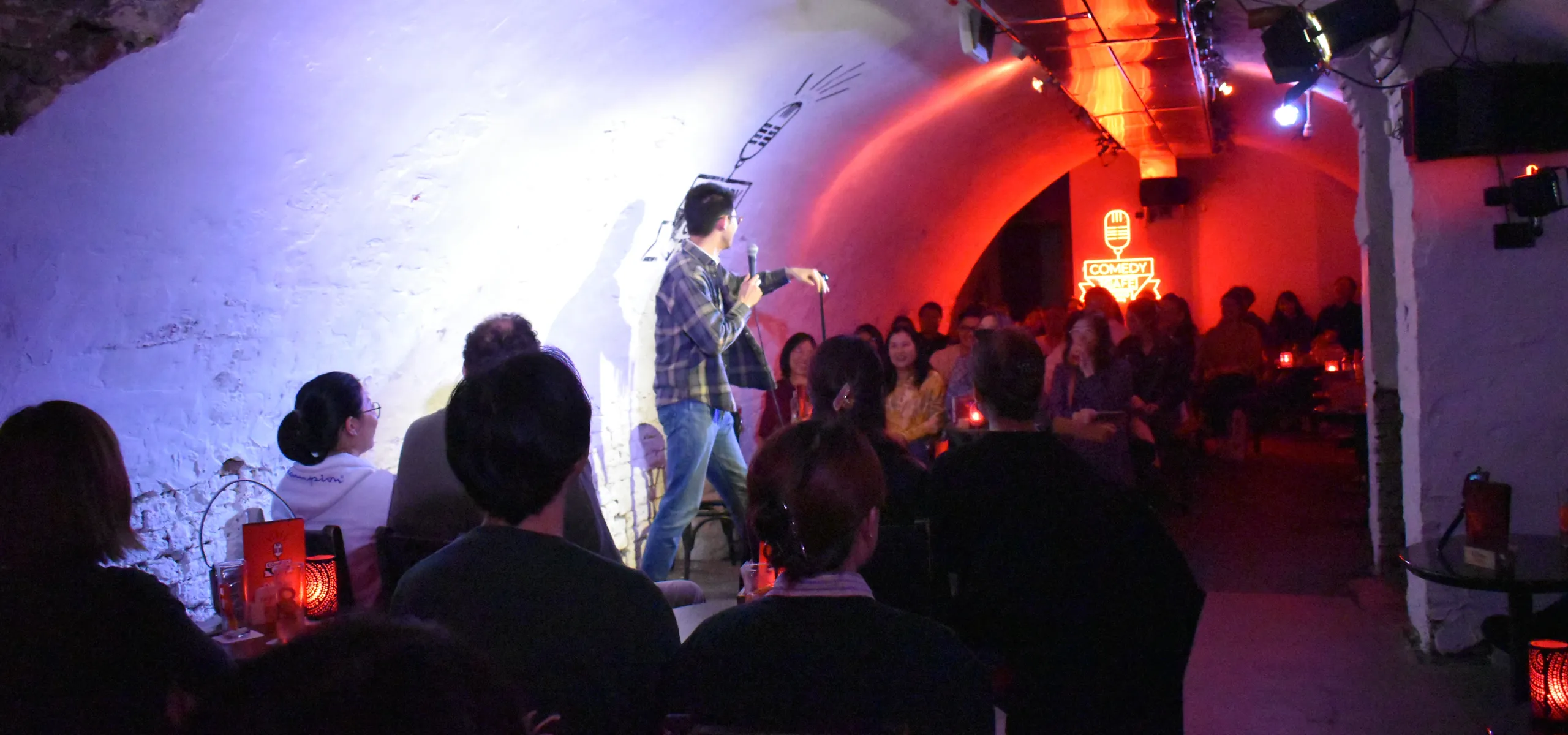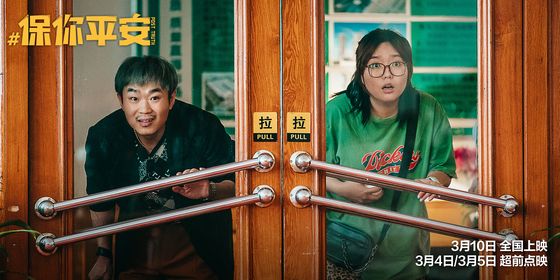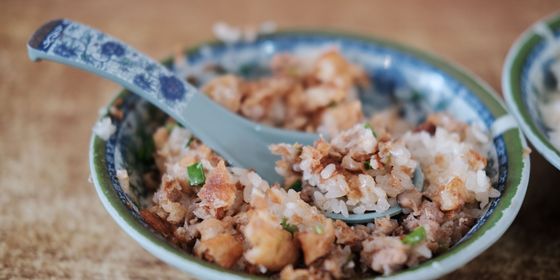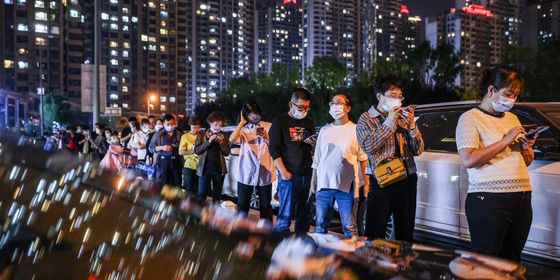In times of rising anti-migrant sentiment in the Netherlands, Chinese comedy clubs provide community and an outlet for reflections on diaspora life
Bathed in the bright red stage lights, the crowded comedy club looked like a hot volcano—and I was about to ignite it with my fierce debut. “When people say nihao to you, kick them into the canals!” I told the audience, which erupted into laughter as if they finally found the remedy to these unsolicited “greetings.” Compared to direct physical violence, these remarks from random strangers on the street are more ambiguous and puzzling. “Nihao is like a banana to tease the monkey,” I said.
Chinese-language comedy clubs are emerging as communal spaces where migrants share stories, seek resonance, and create comfort in times of rising discrimination and a growing sense of insecurity in the Netherlands. One such club is Youfeng, or Gale Comedy, founded in May this year. “Youfeng refers to the Dutch windy weather...On those annoying windy days, I hope people find something soothing, “ says Ma Weina, the 30-something quantitative economics Ph.D. graduate and founder.
On a rainy October night, over 30 people turned up for this Chinese comedy show in Utrecht, or “little Amsterdam,” just 35 kilometers away from the bustling Dutch capital. The atmosphere was warm and welcoming, a stark contrast to the wider social climate. Geert Wilders—sometimes called the “Dutch Trump” for his strong anti-immigration stance—and his right-wing Party for Freedom recently won the largest share of the vote in national elections, adding to a sense of insecurity and exclusion among migrants. “If they are harsh to Muslims, will they be kind to the Chinese? Don’t be naive,” wrote one user on China’s Instagram-like Xiaohongshu platform under a post about the election results. The country is home to one of the largest groups of Chinese migrants and people of Chinese descent in Europe, with official statistics from 2018 putting the number at over 90,000.
The open mic night at Gale Comedy takes place once a month and everyone is welcome to perform. The venues are as random as the Dutch weather, from a cave-like cafe in Utrecht to a bubble tea shop (the kind that is ubiquitous across many East Asian countries) in Rotterdam. “English comedy shows never take place in a bubble tea shop, right?” says Ma.
Besides the choice of venues, there are more subtle differences between English and Chinese comedy shows. It is rare to spot Chinese coming alone to an English show. But in a Chinese show, many can be seen arriving on their own. As I take my seat in the audience at Youfeng after my performance, I get talking to a Chinese woman beside me. “If you go alone to an English show, it is very obvious. But here, I blend in easily. I am alone, but not alone,” said the woman, emphasizing a feeling of togetherness that night.
I’d been to several English-language comedy shows since arriving in the Netherlands in April 2018, and topics typically revolved around coffee shops, the red light district, and the “dead bodies of drunk British tourists in the canals.” One comedian had joked that: “I see Dutch moms put babies in front of their bikes as airbags.”
But in Chinese comedy shows, the topics frequently revolved around life back in the motherland. “Where are you from in China?” the host Gun Ge (which means “go-away-brother”) asked the audience to open the night at Gale Comedy. When one person in the audience said Sichuan province, Gun Ge asked, “Are you straight?”—a reference to the stereotype that Sichuan is known for hotpot and gays. When another person said Yunnan province, Gun Ge joked that he wanted to try the variety of Yunnan mushrooms known for their natural hallucinogenic effects.
Very quickly, people were “filling up” the whole China map. “Taiwan,” the guy sitting on my left side shouted and the room was filled with friendly laughter. The host encouraged him to sing the classic Taiwanese song Come and See the Rain in Taipei in Winter.
“It felt like a harmonious Chinese gala,” the woman next to me commented. I often found the English-language shows I attended in the Netherlands cringe-inducing, divisive, or outright racist. “I drank a Chinese soup and got diarrhea,” I had heard one comedian say on stage while he squatted down and pretended to shit on stage at a comedy night at Mezrab cultural center, one of the most popular shows in Amsterdam. While the audience laughed as if it were another normal joke, I felt utterly awkward.
There were also moments of loneliness when I had no clue what was going on. “You know the Dutch’s favorite activity when going abroad?” the Dutch laughed out loud when the comedian uttered the word “swaffelen” (a Dutch slang word for slapping one’s flaccid penis repeatedly against an object or a person). The comedian acted out how a Dutch student “swaffeled” against the Taj Mahal in 2008 and got arrested for humiliating this sacred landmark in India.
At Chinese comedy shows, on the other hand, migrants like me find a space where they can let their guard down and momentarily cast aside the negative experiences they’ve encountered overseas. The significance of this respite becomes clear when considering alarming statistics from 2020: Dutch police logged 6,141 reports of racist incidents, and the Dutch anti-discrimination association ADV received 9,575 complaints. However, these figures likely represent just the tip of the iceberg, as the racism watchdog Radar suggests that a mere three percent of racism victims report their experiences.
A 2021 study by KIS, an institute that conducts social research on behalf of governments, further reveals the pervasive nature of racism in the Netherlands, indicating that it is deeply embedded in various societal structures. A recent Pew Research study depicts a similar scenario in the US, revealing that nine out of ten Asian Americans have experienced discrimination.
Yet prejudice isn’t the only challenge migrants riffed on at comedy shows here. “I finally have time to try comedy, because I lost my job recently,” said one comedian. The audience applauded to show their support. “Don’t worry. It was a bullshit job. I only worked there to make up the time needed to apply for permanent residency,” he revealed.
Some Chinese workers in the Netherlands are facing similar challenges with job losses and the subsequent loss of work visas to stay in the country. “My contract ends in December. I pleaded for an extension of another six months for a bit more buffer time, but the company refused,” one Xiaohongshu user lamented in October. “Ask Chinese restaurants. Some sponsor work permits and give warm meals. Nest in winter and wait for spring to arrive,” advised another Xiaohongshu user.
At another open mic night, the founder and host Da Di opens with an encouraging slogan from the Chinese stand-up comedy competition Rock and Roast: “Everyone can do a 5-minute comedy routine.” Da Di’s hometown in Inner Mongolia, Hailar, means “falling peach flowers in snow water” in Mongolian. His vision for comedy is equally romantic: “Create a comedy utopia where any topic is welcomed and anyone feels included,” he says.
The 30-something-year-old engineer by trade founded Dida Comedy this September. “At first, I tried to register Dadi. Somehow the name was taken. So I registered Dida, just the other way around,” he explains. The show most recently took place in a dance classroom in a community center.
Prospective performers send Da Di messages on Xiaohongshu, and he creates a poster for each performer. Those who wish to stay low profile get a silhouette on the poster instead.
On a quiet afternoon in October, more than 20 people traveled to this community center on the outskirts of Utrecht to see Chinese comedians joke about life in China and as outsiders in a foreign land. The audience included young and old. A 50-something-year-old woman, who introduced herself as Mi Jie or Sister Mi, showed up in a traditional qipao. “Some people go to the Buddhist community club, but I prefer the comedy club because I worship the laughing Budda,” she jokes with me at the event.
As the dance classroom space had no bar, Da Di brought a carton of beverages for the audience to help themselves. The topics of jest varied from politics to current affairs to education. “I joined a WeChat group of high school classmates. While I got my master’s degree, they all have an MBA—Married But Available,” I told the audience, comparing my own life with that of my peers in China.
It was cathartic to be telling jokes in Chinese to an audience who understands the cultural and social background. It was cozy inside the makeshift comedy club—our little utopia for the night. As the night draws to a close, I catch up with Da Di. He’s pleased with how it went. “Perhaps we can host another show before the Lunar New Year to laugh away all the bad things in 2023,” he says with a smile.















